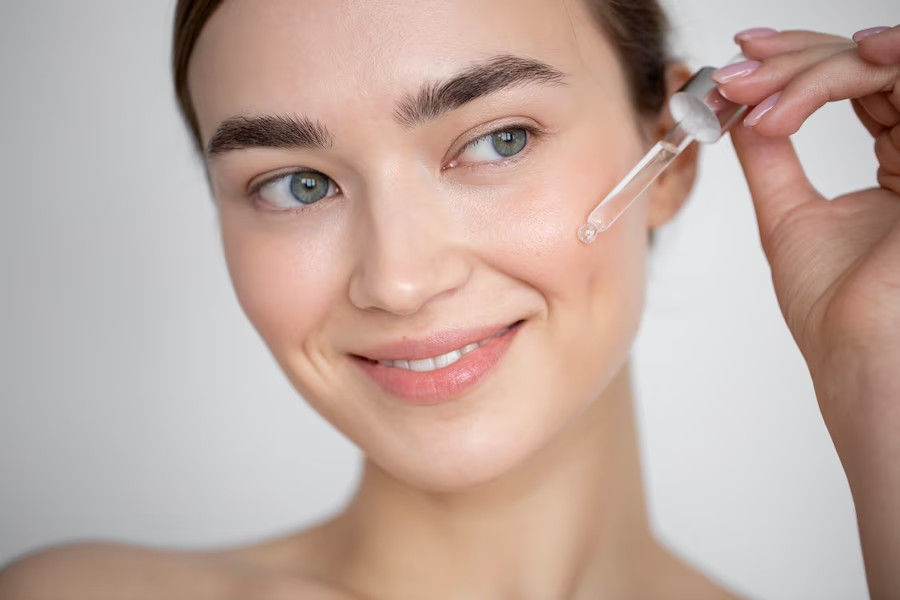The Role of Omega-3 in Skin Care
Omega-3 fatty acids are a powerful and beneficial type of unsaturated fat that can work wonders for the skin. Divided into three types: alpha-linolenic acid (ALA), eicosapentaenoic acid (EPA), and docosahexaenoic acid (DHA) - these fatty acids play crucial roles in maintaining healthy, youthful-looking skin. With a wide range of benefits for your body and skin, incorporating omega-3 fatty acids into your diet could be a game-changer for your overall health and beauty.
The Role Of Omega-3 Fat Acid For The Skin
Protect from sun exposure
Research has found the protective potential of omega-3s against sun damage to the skin. DHA and EPA may increase skin resistance to sunburn and reduce redness and photosensitivity symptoms after UV exposure.
However, further research is needed regarding this case. Therefore, applying sunscreen properly when exposed to the sun is still important.
Overcoming acne
Research shows that omega-3 intake has a positive impact on acne. Taking omega-3 can reduce inflammation and control the severity of acne.
Maintain moisture
Omega-3 can provide benefits in maintaining moisture and fighting skin conditions such as atopic dermatitis and psoriasis. Taking an omega-3 supplement such as flaxseed oil can improve skin hydration and reduce discomfort in rough and sensitive skin.
Accelerating wound healing
Animal studies have demonstrated that omega-3s can accelerate the process of wound healing. It is worth noting, however, that further human studies are required to confirm these findings. The favorable impact of omega-3 on wound healing may be associated with its anti-inflammatory properties.
Prevent skin cancer
Some studies in animals have also shown that taking omega-3 can protect the skin from skin cancer. The nature of omega-3 anti-inflammatory factors affects the growth process of cancer cells.
Also read: 5 Habits That Turns Out To Be Unhealthy For The Skin
Rich Food Source Omega-3
There are many sources of food that are rich in omega-3, including:
- Fat fish such as salmon, macaques, sardines, trout, and tuna
- Fish oil supplements
- Grains and nuts
- Vegetable oils such as sunflower oil, hemp seed oil, and canola flower oil
- Omega-3 Supplement
Also read: Causes And Risk Factors Of Skin Cancer
Omega-3 is indeed an important nutrient to support overall skin health, but to care for the skin, it is necessary to do more than just consume omega-3. You need to meet your fluid needs, protect your skin with sunscreen, use skin care products, and avoid smoking or excessive alcohol.
If you have skin problems that are difficult to solve, immediately go to a doctor or dermatologist. You can also take advantage of health consultation services by downloading the Ai Care application through the App Store or Play Store.
Want to know information about nutrition, food, and other diet tips? Check here, yes!
- dr. Monica Salim
Alina Petre, MS, RD (NL) (2019). Potential Benefits of Omega-3s for Skin and Hair. Available from: https://www.healthline.com/nutrition/omega-3-benefits-on-skin-and-hair
Zia Sherrell, MPH (2021). Is fish oil good for the skin?. Available from: https://www.medicalnewstoday.com/articles/fish-oil-for-skin
Cleveland Clinic (2022). Omega-3 Fatty Acids. Available from: https://my.clevelandclinic.org/health/articles/17290-omega-3-fatty-acids
National Institues of Health (2022). Omega-3 Fatty Acids. Available from: https://ods.od.nih.gov/factsheets/Omega3FattyAcids-Consumer/
University of Rocherster Medical Center (2022). Could Omega-3 Fatty Acids Fight Acne?. Available from: https://www.urmc.rochester.edu/encyclopedia/content.aspx?contenttypeid=6&contentid=1657309040











